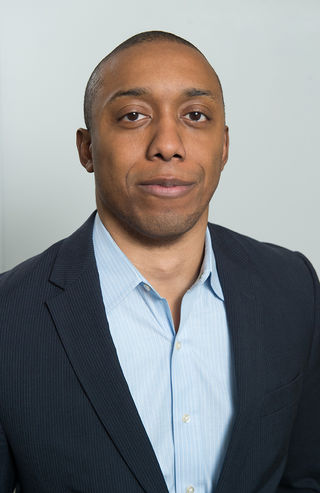
Education
Achieving Equity Through Tackling the Digital Divide
A conversation with Chike Aguh, CEO of EveryoneOn
Posted December 15, 2017

In an effort to explore equity and social justice in schools, I decided to highlight people from the education workforce who are doing important work to ensure that all young people have access to the necessary resources to be successful in school and in life. For my first interview, I decided to speak with Chike Aguh, who is the Chief Executive Office at EveryoneOn, a national nonprofit that creates social and economic opportunity by connecting everyone in the United States to the internet at home. Given the burgeoning reliance on the internet and technology, this work is particularly critical, and I wanted to learn from Chike how he addresses equity through his work at EveryoneOn and what he thinks we can do to begin to educate for equity. What follows is our conversation:
Dena: It has been a treat to grow with you as an educator over the past decade. Thank you so much for taking the time to connect with me. I am so interested in learning more about your current work. Could you please share with us more about EveryoneOn?
Chike: EveryoneOn is a national nonprofit that creates social and economic opportunity by connecting everyone in United States to the internet at home. Since 2012, EveryoneOn has connected more than 500,000 people in 48 states and will connect a total of one million by the end of 2020. According to the American Community Survey, there are more than 62 million people in United States who do have the internet at home. They are disproportionately poor and people of color. What keeps these families offline? Pew Research Center and the Joan Ganz Cooney Center at Rutgers University tell us that the main barrier is cost. People simply cannot afford this vital service and the high price point forces families into a digital divide from which it is hard to escape.
This digital divide is particularly harmful in today’s day and age because of the ubiquity of digital technology and its role in the most routine tasks. Without the internet, students cannot do their homework because 70 percent of their teachers assign online homework. In addition, with the internet at home, the unemployed are employed 25 percent faster, which translates more than $5,400 in additional annual income. When one adds up the economic benefit from the internet in one’s daily life, it totals more than $2 million in additional lifetime earnings. The first rung on the ladder to economic mobility is digital today and must be available to all.
Dena: Wow. These data are startling and sadly not surprising. Worse, the outcomes of the digital divide are troubling. Do you mind sharing more about your inspiration to take this work on?
Chike: In many ways, my upbringing led me to my work at EveryoneOn. My parents are from rural Nigeria, where their parents (my grandparents) did not go past middle school and were taught by Peace Corps volunteers. What changed life for my parents and, by extension for me, was that they both got the chance to come study in the United States at public universities. I truly know that without their hard work, education, and opportunity to study in this country, I literally would not be here. It's that realization that I took into the Bloomberg administration as a special assistant in the school district, as a second grade teacher in Brooklyn, and as a corporate strategy director at a tech firm using analytics to keep at-risk students in school. The tipping point that brought me to EveryoneOn was when I was interviewing to work at EveryoneOn. I told my dad about the organization and its mission and he said to me: "If I came to this country today the way I did in the 1970s and didn't have the internet, there would be no way that I could do what I did." I decided to take the job on the spot after that conversation.
Dena: Thanks so much for sharing some of your story. I think my mother would have said the same thing as your father, as she too came to the country as an immigrant. Given your experience, values, and connection to this work, I am curious to learn more about how EveryoneOn advances equity in education?
Chike: Our work advances educational equity in two main ways. First, it allows students to the basics of education that the internet provides. For example, research shows that just by having the internet at home, a student is 6 to 8 percent more likely to graduate high school. In addition, 70 percent of students receive their homework assignments online and literally cannot complete their work without a computer. The internet is a necessity of day-to-day life in schools in our country today. In our work, we meet students who have to go to McDonald's until 1AM just do their homework. This should not be the case in a country as great as this. Secondly, EveryoneOn’s work to bring the internet to everyone everywhere allows us to universalize opportunity in ways that are not possible today. There are future Sheryl Sandbergs, Mark Zuckerbergs, Steve Jobs, and Tristan Walkers in underserved neighborhoods all over this country. We will never find them and give them the opportunity to create the next Facebook or Slack or Apple without the internet. We believe that the next great technology revolution is going to come out of the forgotten communities of this country and the internet is what is going to make that happen.
Dena: This is so true. I always say that the future cure for cancer is in the mind of a young child in a poverty-stricken neighborhood or slum and that this child may not have the resources to discover his/her/their own genius, which is a detriment to all of us. Given what you shared about how EveryoneOn advances equity, I would love if you could share some ways that you think we could reduce barriers to technology and the internet.
Chike: The biggest ways to reduce barriers to technology and the internet are twofold. First, you must reduce the cost. Research tells us that the top reason that people are offline and without computers is the high cost. School districts and educators should do as much as they can to take this cost off the backs of underserved families. EveryoneOn supports and praises districts that have strategically and judicially gone 1:1 with connected devices for students. Second, the internet/technology is necessary but insufficient for true digital inclusion. We have to make sure that students have the skills to use the internet so that they get the most out of it. This means that true digital literacy training spans the basics of using an internet browser to applying to college online and all the way to learning to front-end/back-end computer coding.

Dena: Now, here is a question I imagine keeps you up at night as much as it does for me: how do you think we can achieve equity in education?
Chike: We achieve in education when we do six things:
- Have a consistent and specific educational bar for what students are supposed to know. This applies all the way from early education to workforce development. That bar should be crafted to meet the rigors of the global economy and the timeless responsibilities of citizenship.
- We need a clear way to measure that students have met that bar. This means accurate, clear, and multi-faceted means of assessment that measure discrete bodies of knowledge but also and more importantly measure higher level cognitive capacities that are actually what make someone successful. This means having a much wider and deeper toolbox of assessments than we have right now.
- We need to recruit, develop, and retain the best teacher and educational leaders to coach, train, and guide students into meeting that aforementioned bar. We should look abroad for how countries like Finland, Singapore, and Poland do this and reverse-engineer those solutions into the American (US) context.
- We need to have a system of financing that pays for all of the aforementioned work that I have described. The United States is the only country in the Organization for Economic Cooperation and Development that funds low-income and underserved students less their affluent peers. This is part of the reason that the US is falling behind educationally, particularly in the K-12 context.
- We must dramatically reimagine “school.” This is generally accepted, but it bears repeating: the current model of American primary, secondary, and higher education are based off practices from the early 20th century. These systems are no longer functioning the way that we intended and particularly failing low-income students and students of color.
- We need to create a political consensus and wholesale mindset change in society that a quality education for every student is a right not a privilege, a necessity for all not a luxury for some of us. If we do not, we will not make the hard choices to deliver on the education promise for all that brought my parents to this country.
If you are interested, please check out this Soul Pancake video, which highlights the inequity of the digital divide:



